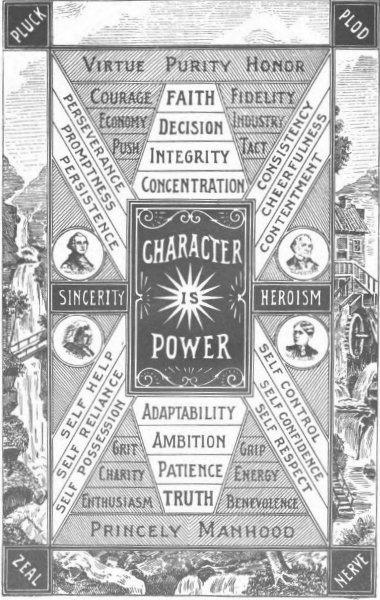ChrisL
Diamond Member
TY for sharing. Sorry to hear it didn't work out for you.Some couples should have never married.Both parties have to want to make it work and have respect and love and care for one another. People who don't get along well are probably more apt to cheat. That is sometimes not any one person's fault, it's just the way it is. Some people's personalities are going to clash.
Yeah, but unfortunately some people get married before they really get to know one another well. Imagine having to be married to someone that you can't stand? That's probably why some people cheat anyways, because they hate each other. Lol.
I'm one of those people who got married before they knew their spouse, and did it for all the wrong reasons.
I had just made E4 in the Navy, and all my friends who had just made E4 were getting married. Well, I went on leave with a friend of mine and his girlfriend introduced me to a friend of hers. I then spent the next few days screwing my brains out. I went back to Norfolk, got drunk one night, called her up and proposed. She accepted, because she was desperate to get out of the small town she was in.
I only spent about a week of face to face time with her (the week I was having sex), and wrote a couple of letters and made a couple of phone calls. Time from meeting her to marriage was about a month.
Yeah, I know, kinda messed up, and that is the reason my marriage only lasted about 7 years.
At the time, were you even sure of exactly what it meant to you to be married at all, without regard to whom you wed? I know I hadn't figured that out by my early twenties, and truly only had it figured out after about two years of being married. It so happened that my wife and I concurrently evolved our fuller understanding of what marriage meant to each of us, and fortunately we arrived at the same conception of what it was "really all about."
I can't say what may have happened had we arrived at different conclusions. I can say that even though marriages are pair bonds, the parties to them are nonetheless individuals and as such may well develop differing opinions of what a/their marriage is, what they want from it, why they're married, etc. I can identify those things for myself. I require that a potential spouse share my views in that regard, but I can't and won't tell someone else what those things should be for them. I have no place to say where on the spectrum of marital behavior and satisfaction anyone else should find it fitting to enter, remain in, or exit a marriage.
You are not at all the only person to wed before you knew your partner well. Indeed, it's possible you didn't at the time know yourself well. Indeed, it's very challenging to get to know someone else well when one doesn't know oneself well. Either of those two states of being, IMO, can augur poorly for a marriage's prospects, and yet some folks for whom one or the other was their circumstance "get lucky" and the marriage works out. For others, it doesn't.
What is there to say? At that level of interaction (emotional, financial, life progression, etc.), one has to be true to oneself before one can be true to another. So long as you learned and grew from that experience, it was a useful experience, however painful it may have been and remains.
To wit, as goes the matter of your "messing up," perhaps you didn't "mess up" at all. You've got to ask yourself whether there was another way, a less fraught way, given who you were "back then" and the circumstances/stimuli that influenced you, for you to have learned the lessons you did from your experience of marrying "too soon" and later parting ways. If there really wasn't, which is fairly likely, then you didn't mess up so much as you merely had to "drive the bumpy road," as it were, to arrive the knowledge you gained from that experience. Everybody at various times take a bumpy road to somewhere; it's merely that your bumpy road happened to be the one that included a marriage that didn't last "'til death do you part."
You know, I came to those conclusions in my late 20's, after I'd gotten divorced and had to "grow up" a bit and actually get to know myself.
A friend of mine who helped me through the tough times once told me something that has stuck with me about relationships. He told me "Rob, true love isn't about FINDING the right person, true love is about BECOMING the right person. Become the kind of person you would like to attract and see what happens.
He was right. And yeah, I got married when I was around 20, and didn't really know squat about what it meant to be an adult (had been in for 2 years), and also had zero clue about what a long lasting meaningful relationship is.
But, since I "grew up" and learned who I really am, things got a whole lot better, and I started attracting quality women who were into me for me.
So, pretend to be someone that is not really you. Interesting. I had a friend who tried that, put on a farce and tried to hide her true self and be someone that she really wasn't and couldn't ever be. She is divorced now, of course.

